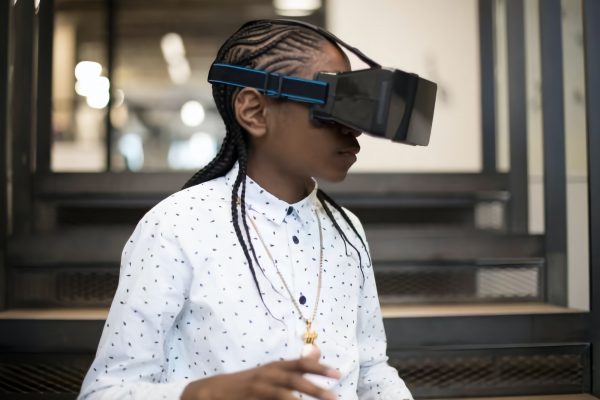It’s been named as one of the top five emerging trends and technologies of 2022 by Gartner, yet there’s still so much we don’t know about the exciting and mysterious world of the metaverse.
However, in the travel and aviation industries, this convergence of physical and virtual worlds is gathering serious momentum. In fact, research shows the metaverse market in travel and tourism is expected to increase by $188.24 billion USD from 2021 to 2026.
Despite this promise, brands in travel and aviation are still left pondering the effects of the metaverse on their marketing/PR, and whether it will actually drive serious digital business growth.
Encouragingly, we’re already seeing a number of pioneering brands in the industry take a relative leap into the unknown and explore the benefits and challenges presented by the metaverse.
Waking up your wanderlust: multisensory, immersive experiences in travel
Despite its lofty ambition to create almost complete virtual worlds to lose yourself in, the metaverse is still in its relative infancy, with its foundation technologies of AR and VR (augmented and virtual reality) very much the primary players.
But, the evolution of these technologies is only going to increase in sophistication over the coming years – as well as their accessibility and affordability. Forbes predicts that worldwide spend on VR/AR technologies is estimated to reach $72.8 billion in 2024, up from $12 billion in 2020.
Already, hotel chains like Shangri-La, Hyatt, and Soneva offer VR tours of their hotels, allowing potential guests to explore the rooms, facilities, and surroundings of their properties, all from the comfort of their sofa.
Entire cities are even getting in on the action, as they attempt to attract new audiences from far-flung corners of the globe. Madrid and Seoul are just two examples of cities exploring metaverse technologies to entice more tourists, by showing off the sights and sounds of their top attractions.
NFTs in the sky: sending aviation soaring
NFTs are another trend being touted as must-have accessories in the metaverse future. Aviation brands are even exploring the possibility of selling flight tickets through the metaverse, using NFTs as a form of currency.
Air Europa has recently teamed up with blockchain distributors TravelX to offer NFT flight tickets, a series of unique and collectible pieces that can ultimately be used to travel to Miami for the famous Art Basel exhibition.
If you needed any convincing of the initiative’s viability, TravelX and Air Europa sold the first NFT ticket at auction for a staggering $1 million.
For those who don’t have a million dollars lying around the house, other aviation brands are exploring more accessible ways to ride the metaverse wave. For example, budget Spanish airline Vueling will soon allow travellers to book flight tickets directly through the metaverse.
In B2B, airlines are exploring the metaverse to win the battle for business travellers. To show off its luxury business travel experience, Qatar Airways has released its own Qverse, a VR experience that lets people tour Qatar’s business lounges at Hamad International Airport, as well as its business class sections onboard its planes.
Meanwhile, airlines like Etihad and Emirates are actually making virtual reality a commodity within airports themselves, meaning lounge visitors can relax, play games, or watch movies through their VR headsets prior to boarding. British Airways has even made VR a part of its in-flight entertainment offering for first-class flyers.
Accessibility and affordability: the metaverse is moving forwards
Ultimately, travel in the metaverse will never truly outshine the real deal. That feeling of stepping off the plane into a hot country, collapsing onto a comfy hotel bed after a long flight, or experiencing the sights, sounds, a smells of a new place… nothing in the virtual world will eclipse that.
But the metaverse does have the potential to enhance and augment many aspects of the travel experience. From virtually touring hotels and airline lounges before booking, to purchasing flight tickets in the metaverse with NFTs, we’re seeing new and exciting use cases emerge into the market frequently.
Ultimately, while its application does still seem limited to luxury travel and tourism, we can expect the metaverse to become more accessible and affordable in the coming years, which makes it an exciting proposition across the entire travel and aviation industry.
If you would like to chat through how your business can find its way in the metaverse, do get in touch.









